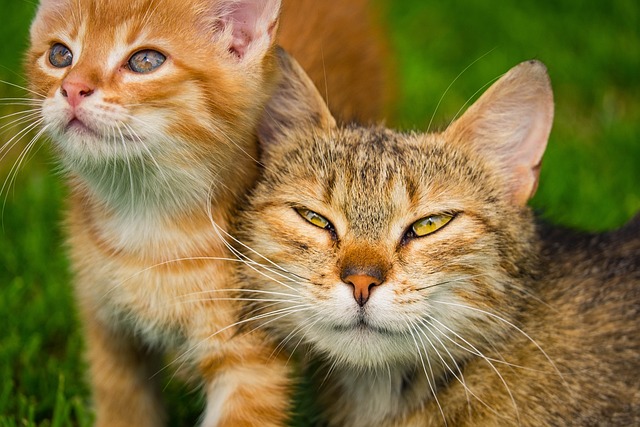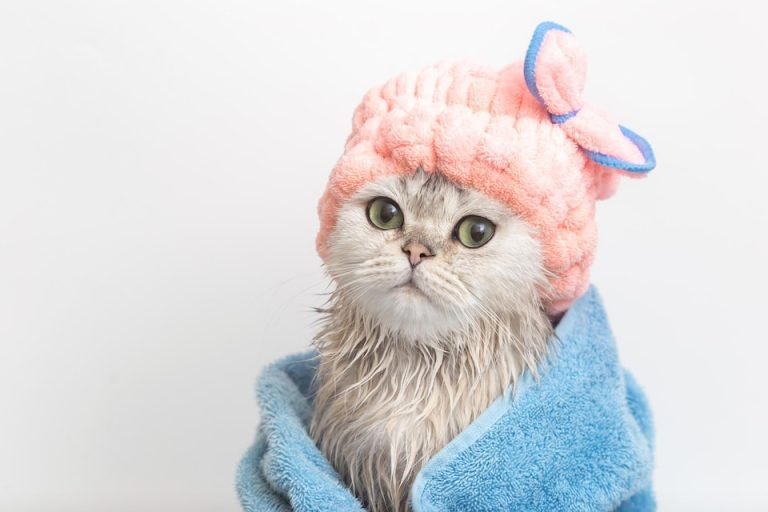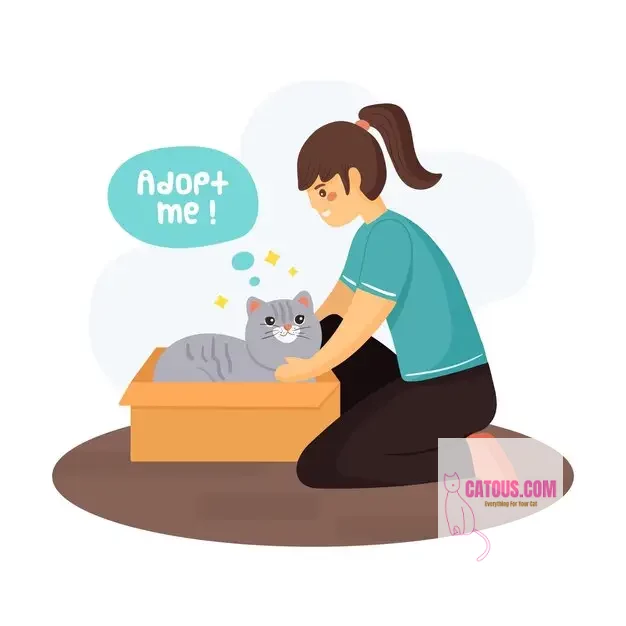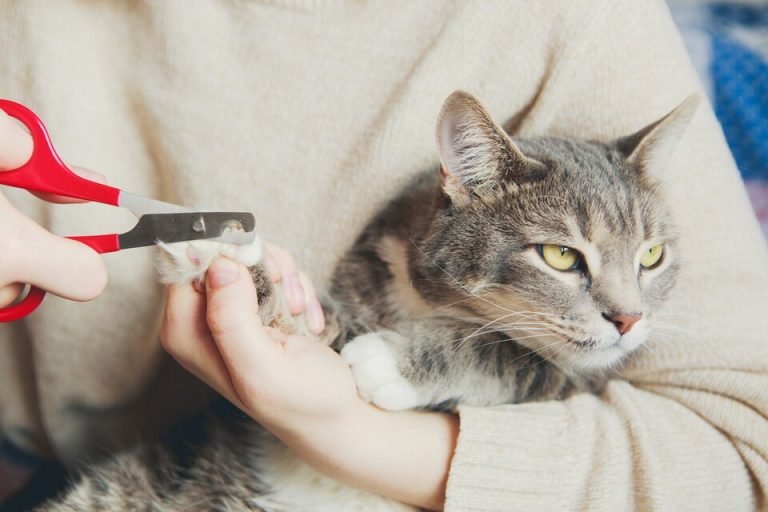Disclosure: This page may contain ads and affiliate links. We may earn a commission at no extra cost to you.
Views: 21
Disclosure: This page may contain ads and affiliate links. We may earn a commission at no extra cost to you.

Table of Contents
Bringing home a new cat?
Bringing home a new cat can be an exciting and rewarding experience. Before you bring your new cat home, it is important to make sure that you are prepared for the transition. Here are some tips to help you get ready for your new feline friend: 1. Set up a safe and comfortable space for your cat. Make sure that the space is away from any potential hazards, such as electrical cords or other animals. Provide your cat with a litter box, food and water dishes, and a scratching post. 2. Get the necessary supplies. Make sure you have all the necessary supplies for your cat, such as food, litter, toys, and a bed. 3. Introduce your cat to your home slowly. Allow your cat to explore the new environment at their own pace. Give them plenty of time to adjust to their new home. 4. Spend time with your cat. Spend time playing with your cat and getting to know them. This will help them to feel more comfortable in their new home. 5. Provide your cat with regular veterinary care. Make sure that your cat is up to date on all their vaccinations and that they are receiving regular check-ups. Bringing home a new cat can be a wonderful experience. With the right preparation and care, you and your cat can have a long and happy life together.
Should you bring home a kitten?
Bringing home a kitten can be a wonderful experience, but it is important to consider all the factors before making the decision. Kittens require a lot of care and attention, and they can be a big responsibility. First, you should consider the cost of owning a kitten. Kittens need to be spayed or neutered, vaccinated, and have regular vet check-ups. They also need food, litter, toys, and other supplies. All of these costs can add up quickly, so it is important to make sure you can afford the financial commitment of owning a kitten. Second, you should think about the time commitment of owning a kitten. Kittens need to be fed, groomed, and played with regularly. They also need to be trained and socialized, which can take a lot of time and patience. If you are not able to commit to the time and energy required to care for a kitten, then it may not be the right choice for you. Third, you should consider the lifestyle of your family. Kittens are very active and curious, and they can get into a lot of trouble if they are not supervised. If you have young children or other pets, you should make sure that everyone is comfortable with the idea of bringing a kitten into the home. Finally, you should think about the long-term commitment of owning a kitten. Kittens can live for up to 20 years, so you should be prepared to make a long-term commitment to your pet. Overall, bringing home a kitten can be a wonderful experience, but it is important to consider all the factors before making the decision. If you are able to make the financial, time, and lifestyle commitments required to care for a kitten, then it can be a rewarding experience for both you and your pet.
How to choose the right kitten that will best suit your older cat?
When it comes to choosing the right kitten to best suit your older cat, there are a few things to consider. First, it is important to think about the age of your older cat. If your cat is older, it may be best to choose a kitten that is closer in age to your older cat. This will help ensure that the two cats can bond and get along better. Second, it is important to consider the personality of your older cat. If your older cat is more laid back and relaxed, then it may be best to choose a kitten that is also more laid back and relaxed. On the other hand, if your older cat is more active and playful, then it may be best to choose a kitten that is also more active and playful. Third, it is important to consider the size of your older cat. If your older cat is larger, then it may be best to choose a kitten that is also larger. This will help ensure that the two cats can play together without one of them getting hurt. Finally, it is important to consider the breed of your older cat. If your older cat is a purebred, then it may be best to choose a kitten that is also a purebred. This will help ensure that the two cats have similar temperaments and personalities. Overall, when it comes to choosing the right kitten to best suit your older cat, it is important to consider the age, personality, size, and breed of your older cat. By taking these factors into consideration, you can ensure that the two cats will get along and bond well.
The exact age at which you’ll may introduce a Kitten to an Older Cat?
When introducing a kitten to an older cat, it is important to take into consideration the age of the kitten. Generally, kittens should be at least 8 weeks old before they are introduced to an older cat. This is because kittens younger than 8 weeks are still developing and may not be able to handle the stress of a new environment. Additionally, kittens younger than 8 weeks may not have had all of their vaccinations, which could put the older cat at risk of contracting a disease. When introducing a kitten to an older cat, it is important to create a safe and comfortable environment for both cats. This can be done by providing separate areas for each cat, such as separate litter boxes, food and water dishes, and beds. It is also important to provide plenty of toys and scratching posts to keep the cats entertained and to help them bond. When introducing the cats, it is important to do so slowly. Start by placing the kitten in a separate room and allowing the older cat to explore the room and get used to the kitten’s scent. Once the older cat is comfortable, you can slowly introduce the cats to each other. It is important to supervise the cats during this time and to be prepared to separate them if necessary. It is also important to provide plenty of positive reinforcement for both cats during the introduction process. Give them treats and praise when they interact with each other in a positive way. This will help them to form a bond and will make the introduction process easier. Overall, the exact age at which you should introduce a kitten to an older cat depends on the age of the kitten. Generally, kittens should be at least 8 weeks old before they are introduced to an older cat. It is also important to create a safe and comfortable environment for both cats, introduce them slowly, and provide plenty of positive reinforcement. With patience and understanding, the introduction process can be successful and both cats can learn to live together peacefully.
Dealing With Potential Problems
Keep health issues in mind
It is important to not rush into making introductions between a new kitten and other pets in the home until the kitten has received a clean bill of health from the veterinarian. This is because the kitten may be carrying diseases or parasites that could be passed on to other pets in the home. It is also important to ensure that the kitten is up to date on all of its vaccinations before introducing it to other pets. In addition, it is important to make sure that the kitten is healthy and free of any contagious illnesses before introducing it to other pets. This is because the other pets in the home may not have the same immunity to certain illnesses that the kitten may have. If the kitten is not healthy, it could spread illnesses to the other pets in the home, which could be dangerous or even fatal. It is also important to make sure that the kitten is comfortable and acclimated to its new home before introducing it to other pets. This is because the kitten may be scared or overwhelmed in its new environment and may not be ready to interact with other pets. If the kitten is not comfortable, it may become aggressive or defensive when it is introduced to other pets, which could lead to a dangerous situation. Finally, it is important to make sure that the kitten is spayed or neutered before introducing it to other pets. This is because unaltered cats can be more aggressive and territorial, which could lead to fights between the kitten and other pets in the home. Overall, it is important to not rush into making introductions between a new kitten and other pets in the home until the kitten has received a clean bill of health from the veterinarian. This is because the kitten may be carrying diseases or parasites that could be passed on to other pets in the home, and it is important to make sure that the kitten is healthy, comfortable, and spayed or neutered before introducing it to other pets.
Senior cats and overactive kittens don’t mix well
It is true that older cats may become very stressed by the presence of an active kitten. This is because cats are territorial animals and they may feel threatened by the presence of a new, unfamiliar cat in their home. Additionally, kittens are often very energetic and can be quite loud, which can be overwhelming for an older cat. If you are introducing a kitten to an older cat, it is important to do so slowly and carefully. Start by keeping the kitten in a separate room for a few days so that the cats can become familiar with each other’s scent. Then, gradually introduce them to each other, allowing them to sniff each other through a barrier such as a baby gate. This will help them become more comfortable with each other. It is also important to provide plenty of hiding spots for the older cat so that they can retreat if they become overwhelmed. Additionally, make sure to provide plenty of food, water, and litter boxes so that the cats do not have to compete for resources. Finally, it is important to provide plenty of enrichment activities for both cats. This can include interactive toys, scratching posts, and cat trees. This will help keep the kitten occupied and give the older cat a break from the kitten’s energy. Overall, introducing a kitten to an older cat can be a stressful experience for both cats. However, with patience and careful planning, it is possible to make the transition as smooth as possible.
What to do if your older cat is attacking the kitten
Yes, I have noticed the older cat trying to bite or otherwise attack the kitten. This behavior is very concerning and can be dangerous for both cats. It is important to take steps to address this behavior as soon as possible. The first step is to identify the cause of the aggression. It could be due to fear, territoriality, or even a medical issue. If the older cat is feeling threatened by the presence of the kitten, it is important to provide the older cat with a safe space away from the kitten. This could be a separate room or area of the house where the older cat can retreat to when feeling overwhelmed. It is also important to provide the older cat with plenty of attention and affection. This will help the older cat feel secure and less threatened by the presence of the kitten. Additionally, it is important to provide the older cat with plenty of enrichment activities such as toys, scratching posts, and interactive play. This will help keep the older cat mentally stimulated and less likely to act out aggressively. If the aggression persists, it is important to consult a veterinarian or animal behaviorist. They can help identify the underlying cause of the aggression and provide advice on how to address it. In the meantime, it is important to keep the cats separated when possible and to supervise them when they are together. This will help ensure that the kitten is safe and that the older cat does not become too aggressive. Additionally, it is important to provide both cats with plenty of positive reinforcement when they are behaving appropriately. This will help reinforce the desired behavior and discourage the aggressive behavior. Overall, it is important to take steps to address the aggression as soon as possible. With the right approach, it is possible to help the cats learn to coexist peacefully.
If you notice a change in the older cat’s behavior
If you notice a change in the behavior of an older cat, it is important to take note and take action. It could be a sign of an underlying medical condition or a change in the cat’s environment. It is important to observe the cat closely and take note of any changes in behavior, such as changes in eating habits, sleeping patterns, or activity levels. If the cat is exhibiting signs of pain or discomfort, it is important to take the cat to the vet for a checkup. The vet can perform a physical exam and run tests to determine if there is an underlying medical condition. Common medical conditions in older cats include arthritis, kidney disease, and hyperthyroidism. It is also important to consider environmental changes that may be causing the change in behavior. If the cat is in a new home, it may take some time for the cat to adjust to the new environment. If the cat is in a multi-cat household, it is important to make sure that all cats are getting along and that there is enough space for each cat to have their own area. Finally, it is important to provide the cat with plenty of love and attention. Older cats may need more frequent grooming, playtime, and cuddles. Providing the cat with a comfortable and safe environment can help reduce stress and improve the cat’s overall wellbeing.
Set Your Expectations
Disclosure: This page may contain ads and affiliate links. We may earn a commission at no extra cost to you.
As with any introduction of one cat to another—set your expectations ahead of time. The two cats may or may never become good friends. And that’s ok. All you can do is provide them with the best surroundings for getting close to each other and make sure no one actually gets hurt.
Disclosure: This page may contain ads and affiliate links. We may earn a commission at no extra cost to you.






